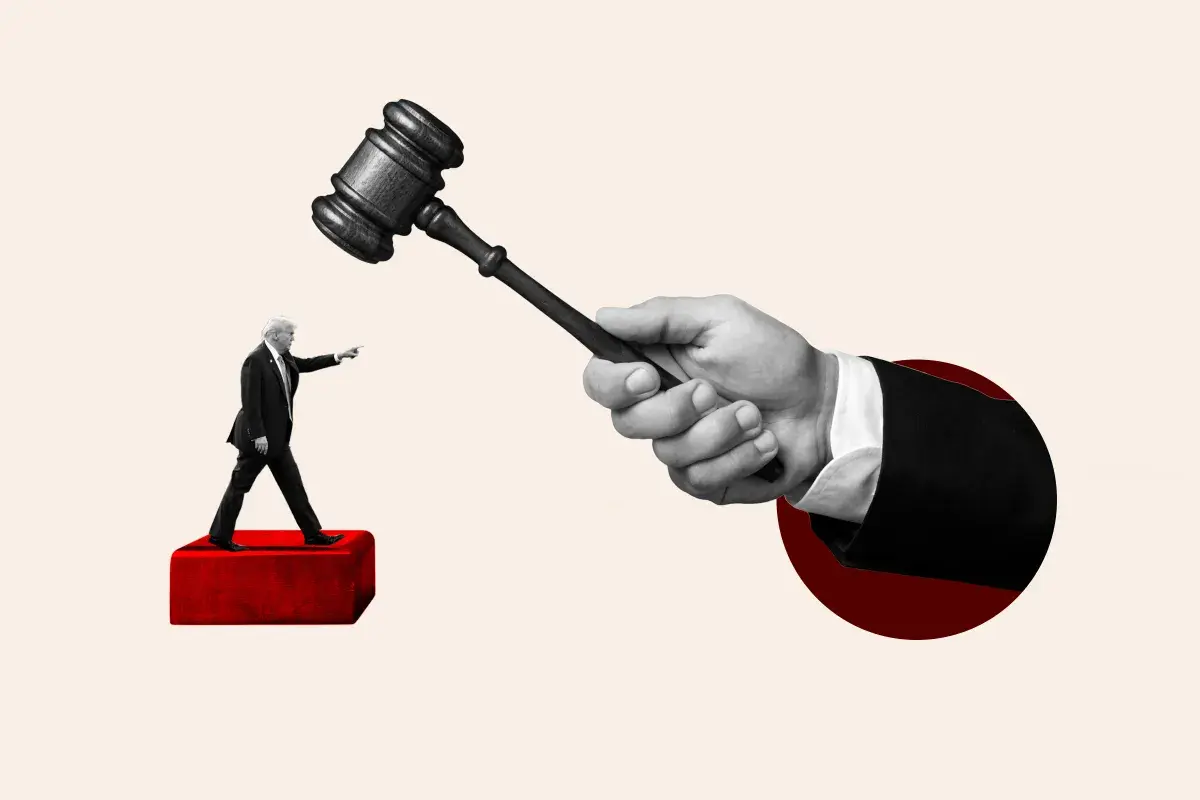
The U.S. Supreme Court is set to hear oral arguments challenging President Donald Trump’s power to use the International Emergency Economic Powers Act (IEEPA) to impose sweeping tariffs, a core pillar of his economic policy since taking office in January.
The cases Learning Resources Inc. v. Trump and Trump v. V.O.S. Selections Inc., which are consolidated, are scheduled for oral arguments before the Supreme Court on November 5.
Why It Matters
The Court kicked off a new term in October. The bench currently has a 6-3 conservative majority and has ruled in favor of the Trump administration on many key issues, including immigration enforcement and cuts at federal government agencies. Trump appointed three of the justices during his first term.
An October Gallup poll found that over 40 percent of Americans, an all-time high, say the Court is “too conservative.” Despite the Court’s conservative majority, the justices ruled unanimously in 42 percent of cases decided last term. In 2023, they ruled unanimously in 44 percent of cases, and in 2022, the rate was 50 percent, according to SCOTUSblog.
Trump has repeatedly announced, imposed, paused and reinstated a slew of tariffs at varying rates on U.S. trading partners to curb immigration, drug trafficking, and reduce trade deficits, as a core facet of his economic policy.
Trump’s use of the 1977 IEEPA to impose tariffs without seeking congressional approval or conducting investigations first has raised legal alarms. The law gives presidents broad power to impose economic sanctions during national emergencies, but Trump is the first president to use it to impose tariffs.
What To Know
In Learning Resources Inc. v. Trump, two small family-owned businesses with the majority of their manufacturing of educational toys taking place overseas, notably in China. Trump’s tariffs on China, which included trafficking and reciprocal, at one point made Chinese goods taxed over 145 percent.
The petitioners were directly affected as their import costs rose by millions of dollars, threatening their businesses. They filed suit in April 2025 in the U.S. District Court for the District of Columbia, challenging the legality of Trump’s use of the IEEPA Act to impose tariffs.
In May, the district court issued a preliminary injunction on the matter, but that order was stayed days later. The Trump administration appealed it to the Court of Appeals for the D.C. Circuit.
In another case, V.O.S. Selections, a wine and spirits importer, and a coalition of twelve states challenged the tariffs in the U.S. Court of International Trade. In May, that court unanimously ruled against Trump’s power to impose tariffs, saying, “Because of the Constitution’s express allocation of the tariff power to Congress…we do not read IEEPA to delegate an unbounded tariff authority to the President.”
Trump immediately posted on his Truth Social account at the time, writing on May 29: “The ruling by the U.S. Court of International Trade is so wrong, and so political! Hopefully, the Supreme Court will reverse this horrible, Country threatening decision, QUICKLY and DECISIVELY. Backroom “hustlers” must not be allowed to destroy our Nation! The horrific decision stated that I would have to get the approval of Congress for these Tariffs.”
Article I of the Constitution grants Congress the power to set tariffs. Trump has relied on the IEEPA to issue his tariffs without Congressional approval. In October, the Senate passed a measure to block some of Trump’s tariffs on Brazil.
The Trump administration has repeatedly stated that the tariffs fall within the president’s authority and has cited the IEEPA in his executive orders related to reciprocal tariffs.
What People Are Saying
Justin Wolfers, economist and public policy scholar, said in an X post on October 12: “There’s a decent chance that the Supremes will strike down Trump’s extra special brand new 100% China tariff, as unconstitutional. And so it’s doubly notable how much markets panicked despite the (roughly) 50% chance it won’t happen.”
Attorneys for the states of Arizona, Colorado, Connecticut, Delaware, Illinois, Maine, Minnesota, Nevada, New Mexico, New York, Oregon and Vermont, in a brief: “The en banc Federal Circuit, like every other court that has addressed the question, correctly held that IEEPA does not authorize any of the tariffs the state respondents challenged. But the issue is undoubtedly of great national importance. Thus, although the Federal Circuit got it right—and although the petition is littered with inaccuracies, hyperbole, and citations to material outside the summary judgment record—the state respondents agree that this Court should grant expedited review.”
White House trade adviser Peter Navarro said in a September statement: “This case is arguably the single most important economic case that has ever come before the Supreme Court. If the lower court’s ruling is upheld, President Trump has correctly said that will be the end of the United States…we are optimistic that the Supreme Court will rule on this.”
Former GOP House Speaker Paul Ryan told CNBC back in August: “It’s more than likely that the Supreme Court knocks out IEEPA, the law that’s being used for these tariffs, which doesn’t have the word ‘tariff’ in it. Then, the president is going to have to go to other laws to justify tariffs—232, 201, 301. There’s a bunch of laws, and those are harder laws to operate with.”
